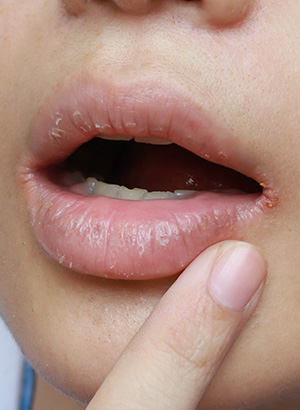Blog
Oil Pulling for Dry Mouth: Hydration and Saliva Stimulation Benefits

Dry mouth might occur when you are dehydrated or feeling very stressed. However, if your mouth is constantly dry (xerostomia), this might indicate an underlying health problem. Certain drugs can also contribute to it. If left untreated, xerostomia increases the risk of tooth decay, gum disease, and other dental problems.
So, most people today look for natural solutions to overcome issues like dry mouth. As per Ayurveda, natural ingredient pulling oil has come up to be one of the most effective remedies for treating all kinds of oral health issues.
In this post, you can explore the perks of using natural ingredient pulling oil to treat dry mouth.
What is Dry Mouth?
Xerostomia, commonly referred to as a dry mouth, manifests when the salivary glands in the oral cavity fail to generate an adequate amount of saliva. This condition gives rise to a parched sensation in the mouth and may accompany other symptoms such as unpleasant breath, a dry throat, and chapped lips.
Saliva plays a crucial role in the digestion process, contributing to the moistening and breakdown of food. Moreover, it serves as a fundamental defence mechanism, actively safeguarding your oral health by shielding the mouth against gum disease and tooth decay.
While dry mouth itself is not typically a severe medical issue, it can function as a symptom of an underlying condition that warrants dry mouth treatment. Additionally, it has the potential to lead to complications such as tooth decay and the development of mouth sores. Therefore, addressing the root cause and managing dry mouth is essential for maintaining overall oral health.
What Causes Xerostomia (Dry Mouth)?
Xerostomia occurs when your salivary glands generate less saliva than usual.
- Certain drugs might induce dry mouth.
- Any underlying medical issues.
- Radiation treatment, particularly for cancers of the head and neck.
- Chemotherapy medications.
- dehydration
- Breathing via the mouth.
Hydration Benefits of Oil Pulling for Dry Mouth
The ability of natural ingredient pulling oil to improve oral hydration is one of the main advantages for people who suffer from dry mouth. By hydrating the oral tissues, the swishing motion of oil in the mouth helps to relieve the pain of dry mouth. As a result of the oil's lubricating properties, stickiness and dryness may be lessened, making this condition easier to manage naturally and holistically.
Given its reputation for being a hydrating agent, coconut oil is a common option for dry mouth home remedies. Lauric acid, one of the fatty acids found in it, has antibacterial qualities and promotes the general health of the oral cavity. People who suffer from dry mouth may see an improvement in oral moisture and a decrease in the symptoms of their disease by making oil pulling a regular practice.
Saliva Stimulation: A Natural Remedy for Xerostomia
Maintaining dental health requires saliva, and a lack of it in dry mouth can cause a number of problems. Saliva production has been demonstrated to be stimulated by oil pulling, offering xerostomia sufferers a natural therapy. Saliva is released more readily when one sways oil about in the mouth because it stimulates the salivary glands mechanically.
Saliva production is increased for a number of vital reasons. Saliva aids in the breakdown of food, making digestion easier and encouraging the absorption of nutrients. By neutralising oral acids, it stops cavities from forming and the demineralization of dental enamel. Saliva also possesses antibacterial qualities that aid in preventing the development of dangerous germs in the mouth.
By adding natural ingredient pulling oil to their daily routine, people with dry mouth may be able to restore a more balanced and healthier oral environment. Using this technique to increase saliva production can be very helpful in treating the symptoms and possible side effects of xerostomia.
Choosing the Right Oil for Oil Pulling
Although sesame oil and sunflower oil work well for oil pulling, coconut oil is a popular option due to its flavour and antibacterial qualities. For instance, sesame oil is well-known for its anti-inflammatory and antioxidant qualities and has a long history in Ayurveda medicine. Another alternative with possible advantages is Dabur Red Pulling Oil, which is enriched in both coconut and sesame oil along with other ingredients like clove, thyme mint, Tulsi, cinnamon oil etc.
It's crucial to remember that natural ingredient pulling oil cannot replace consistent dental care routines like brushing and flossing. Instead, it can supplement these regimens and provide further advantages, particularly for those who experience dry mouth.
In Conclusion
With origins in traditional Ayurvedic medicine, oil pulling is becoming more well-known for its possible advantages in treating dry mouth. For those looking for a natural dry mouth treatment for xerostomia, Dabur Red Pulling Oil is a desirable choice because of its ability to increase saliva and promote hydration. Although results may differ from person to person, using oil pulling in a regular dental care regimen may relieve discomfort and improve oral health in general. For specific guidance, as with any health-related procedure, it's best to speak with a healthcare provider, particularly if oil pulling and dry mouth problems increase over time or continue to persist.
FAQs
How do you practise oil pulling?
Oil pulling for teeth is done every morning on an empty stomach. Place a tablespoon of edible oil (typically sesame or coconut) in your mouth and swish it vigorously through your teeth for about 3 to 20 minutes while keeping your mouth closed. After you're done, spit out the oil and rinse your mouth with warm water.
Does oil pulling increase saliva production?
There are many benefits to oil pulling. It can help moisturise your gums and help with saliva production, which reduces bacteria in your mouth. Biofilm, which is also known as plaque, is a bacteria that can cause a host of oral problems, such as gum inflammation, cavities, and more.
Disclaimer: The contents of this article are for informational purposes only and not a substitute for medical advice.







